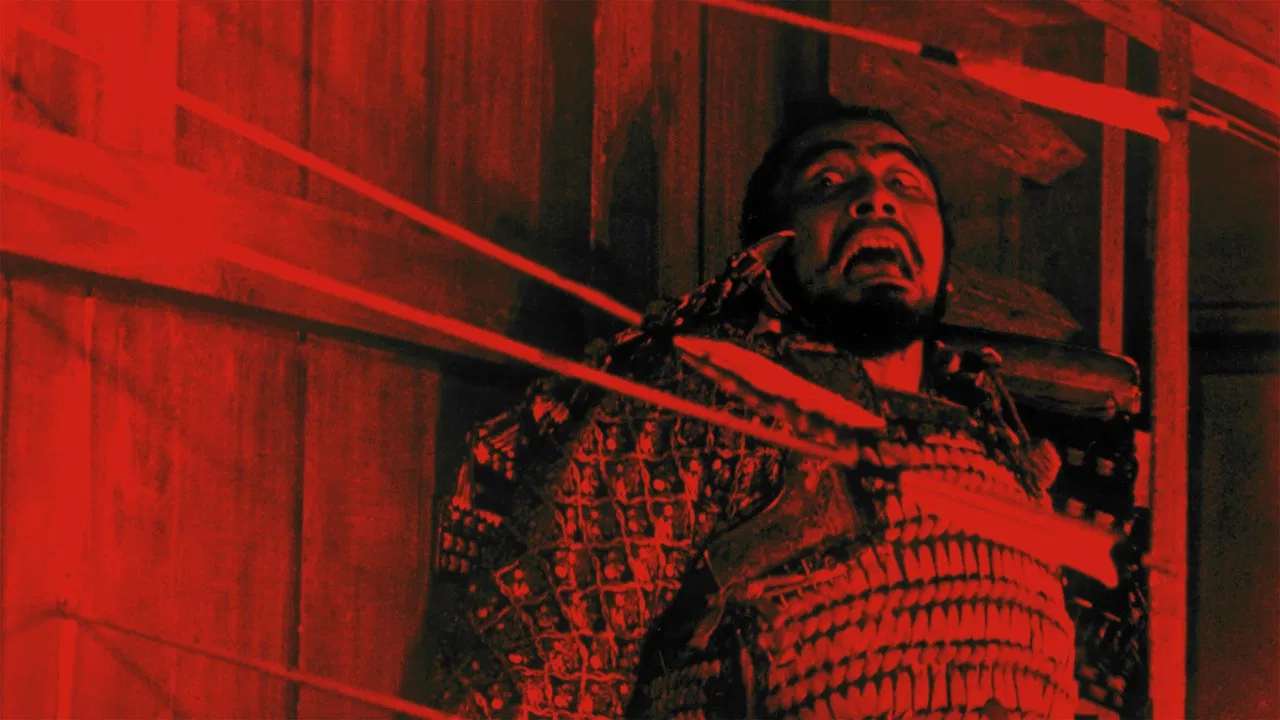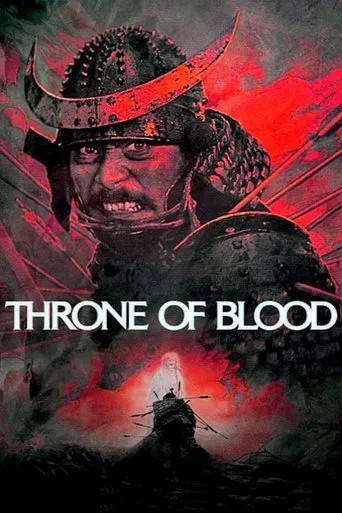

Kurosawa's take on Macbeth, truly magnificent! From the ominous premonition in the Cobweb forest till the unforgettable ending, this film has such a great and natural atmosphere that it feels like this story could not take place anywhere else. Mifune is absolutely great in this. Probably my favorite film from Kurosawa!
... View MoreAkira Kurosawa's "Throne of Blood" is a retelling of Shakespeare's "Macbeth". I am no expert on Shakespeare but the story seemed very familiar. It is a faithful adaptation of the classic story and Kurosawa utilizes his magic to create a tragic tale that is both haunting and triumphant in its own right. The story begins as Washizu (Toshiro Mifune) and Miki (Minoru Chiaki) travel their way through the magical Spider's Web Forest where, through the fog, they meet an otherworldly Spirit who foretells each man his prophecy. Washizu is to become Lord of Spider's Web Castle while Miki becomes Lord of The First Fortress and his son eventually will take over Spider's Web Castle. This scene brilliantly captures the ethereal tone of the film and sets up what is to come. The story of MacBeth deals with the supernatural. Kurosawa brilliantly blends the Western ideology with traditional Japanese folklore to create an atmosphere that is visually intriguing and original. The two men's confrontation with the Spirit is a haunting scene that is magnified by the men's acceptance that what they are seeing is a real spirit from another world. The vast fog surrounding them gives the feeling of loneliness and uncertainty. One thing this film has is a lot of fog. I found that the fog symbolized uncertainty of the future. We see the men riding off into the fog but we are unable to see what is ahead. Along with being a faithful adaptation, Kurosawa, nonetheless, made it his own. The entire cast does great but Toshiro Mifune is a standout as the war-hardened general Wishizu. Just the intensity his eyes give off is a scene in itself. I have yet to see a film where Mifune gives anything less than an amazing performance. Isizu Yamada is very good at playing his wife, Asaji. Some of the best scenes in the film are with those two. She convinces Wishizu to kill their Lord so he can take over the throne and fulfill his prophecy. Thus, the tragedy begins and a trail of bloodshed ensues...one bad omen after another. "Throne of Blood' is a story of betrayal and we reach a point where we know it cannot end well for the main character. In doing research, I learned that Kurosawa incorporated elements of Noh Theatre, a traditional Japanese artform, which is evident in costume design, music and character interactions, such as the interactions between Washizu and his wife. The characters struggle with their conflicting beliefs, but ultimately the thirst for power wins. The film was shot on and around Mount Fuji, which has a rugged landscape and lots of natural fog. I thought it was pretty cool that Kurosawa decided to film there. The landscape works perfectly. The cinematography is very good too. For many outside shots, there is an eerie atmosphere that the fog presents and a rugged, uneasy view of the world. Inside shots are very balanced and calm, as we view the inside of a room from the outside framing. These contrasting shots say a lot. Akira Kurosawa was a master at making every shot count and here, there is no exception. It sucks you right into the world of these individuals and keeps you wondering what will happen next. The ending is sure to satisfy!
... View MoreAkira Kurosawa's "Kumonosu-jō" ("Throne of Blood" in English) opens with a chorus recounting the story of a man who rose to power, sung over the shot of an abandoned castle. An eerie introduction, definitely, but it's no match for what the movie portrays. This adaptation of "Macbeth" seamlessly infuses western literature with Noh theater. I should admit that I have never seen a production of "Macbeth" and am not familiar with Noh, but I understand that a key feature of the latter is stylized conventional gestures to express emotions, and the use of masks. Instead of masks, the characters wear stylized makeup.In transposing Shakespeare's play to feudal Japan, Kurosawa makes war the focus. The final scene - which should be one of the most famous in cinema history - poses the question: does war truly end, or does it persist beyond the actual fighting? All in all, this is probably one of the greatest movies ever made. It's only the fourth Kurosawa movie that I've seen, but I do hope to see the rest of his work, as well as a production of "Macbeth".
... View MoreThis is based on the classic play Macbeth. It changed so that in takes place at the same time Macbeth was supposed to save taken place. But instead of being about Scotland it is about Japan. This is a classic horror story. It has a great story line. It also has great acting. It also has great special effects. It is very scary. It got an 8.1 which is good rating. But it is such a great film that 8.1 is underrating it. I give it 10 out of 10 because it is a awesome movie. It is one of the best horror movies ever. This about an evil emperor of Japan who gets supernatural powers from spirits. The is a great movie see it. Macbeth (1948) is better. But still this a great movie. It is a must see.
... View More